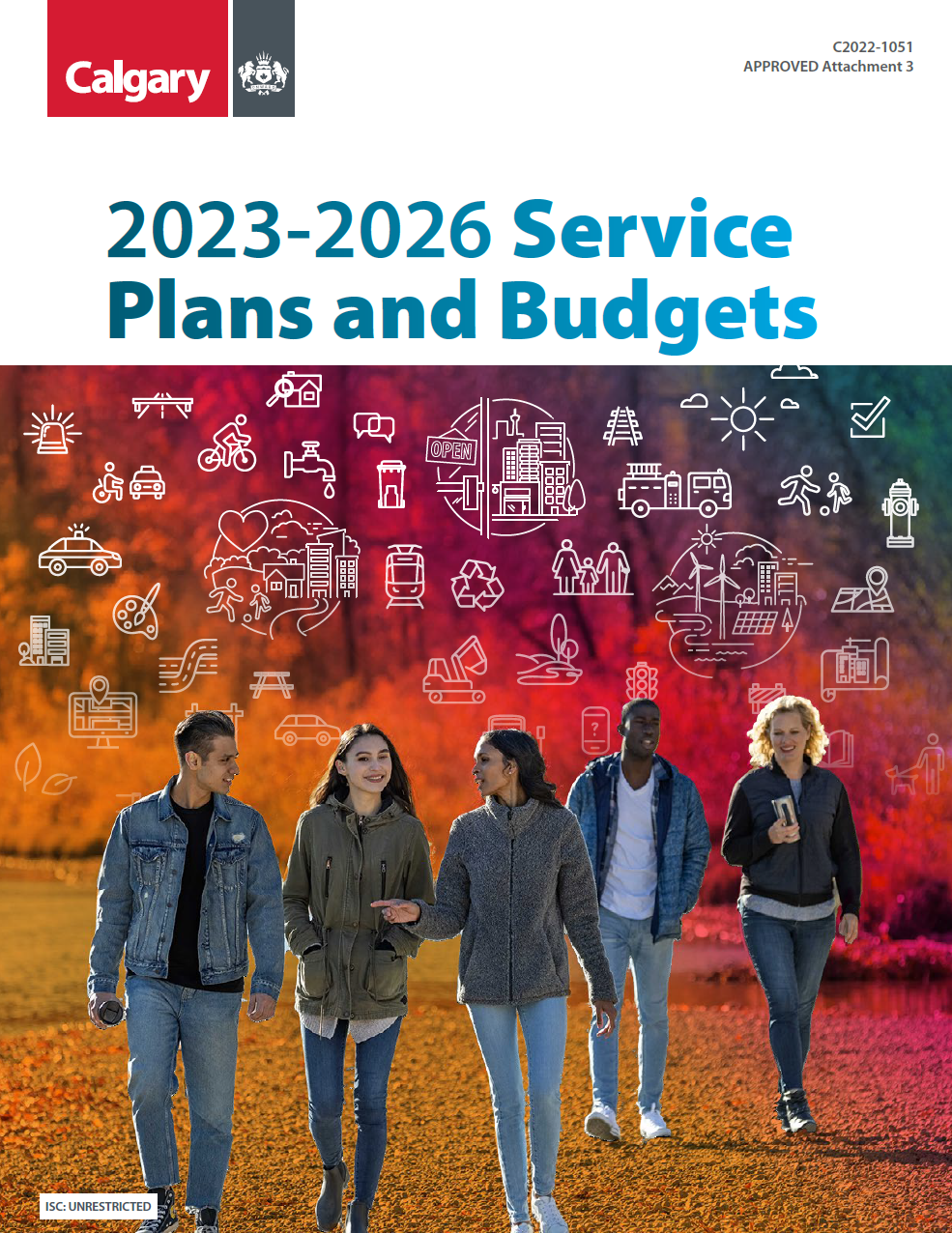City budget
Annual budgets
Each year, we review and update our four year plan to make sure it still meets the needs of Calgarians.
-
Preview what we're planning to spend on services next year and why.
-
See how we're investing in Calgary this year, including spending plans and priorities.

Keeping municipal costs low
Calgary continues to deliver essential services while keeping government costs below inflation and population growth, even as the city rapidly expands.
See how we do itLearn more
Our four-year plan
We're now budgeting at the department level. It helps Calgarians see how their funds support priorities important to them and how each department delivers results.
The 2023-2026 Service Plans and Budgets outlines how The City will spend money to deliver services and build important projects from 2023 to 2026. Guided by Council’s direction, it helps shape decisions and investments across Calgary to improve quality of life, support growth and maintain affordability.
View the original plan
2023-2026 Service plans and budgets
- 2023-2026 Service Plans and Budgets Highlights
- 2023-2026 Service Plans and Budgets
- 2023-2026 Service Plans and Budgets Supplemental Information
- 2023-2026 Service Plans and Budget User Fee and Rate Changes
2025 Mid-Cycle Adjustments
- 2025 Mid-Cycle Adjustments - Summary of Revisions and Council Direction
- 2025 Mid-Cycle Adjustments - Overview
- 2025 Mid-Cycle Adjustments - Recommended Investments
- 2025 Mid-Cycle Adjustments - User Fee and Rate Adjustments
- 2025 Mid-Cycle Adjustments - Capital Budget Adjustments
- 2025 Mid-Cycle Adjustments - Operating Budget Adjustments with No Net Budget Impact
- 2025 Mid-Cycle Adjustments - Operating Budget Continuity Schedule
- 2025 Mid-Cycle Adjustments - Capital Budget Continuity Schedule
2024 Adjustments
- 2024 Adjustments - November Adjustments Summary Report
- 2024 Adjustments - New Investment Recommendations
- 2024 Adjustments - Operating Budget Continuity Schedule
- 2024 Adjustments - Capital Budget Continuity Schedule
- 2024 Adjustments - User Fee and Rate Adjustments - Revised

